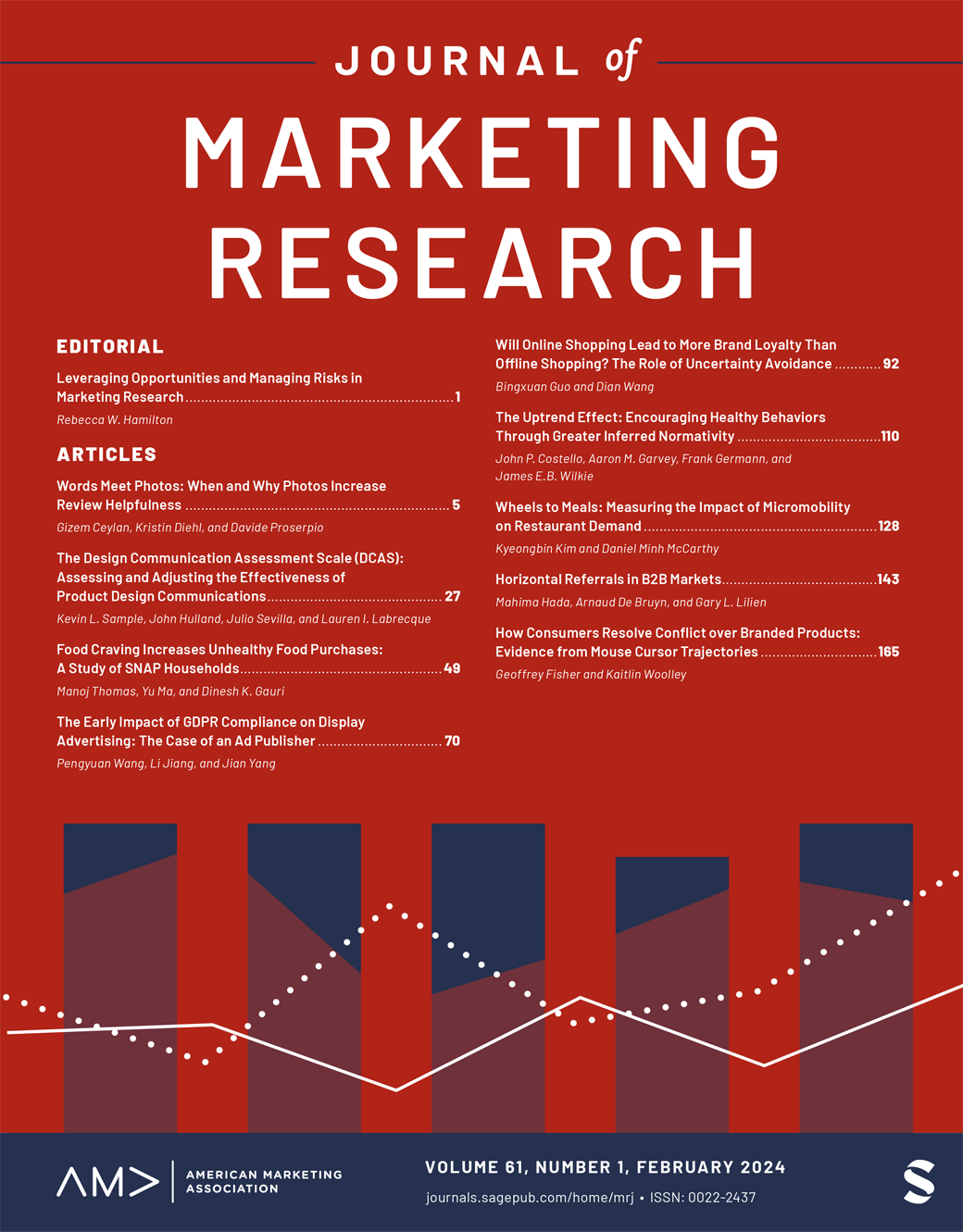The Daily Me Versus the Daily Others: How Do Recommendation Algorithms Change User Interests? Evidence from a Knowledge-Sharing Platform
IF 5
1区 管理学
Q1 BUSINESS
引用次数: 2
Abstract
Recommender systems on online platforms are often accused of polarizing user attention and consumption. The authors examine this phenomenon using a quasi-experiment conducted by Zhihu, the largest online knowledge-sharing platform (or Q&A community) in China. Zhihu originally used a content-based filtering algorithm, which recommends content to users on the basis of the topics to which each user has subscribed. After more than a year, Zhihu moved to a social filtering algorithm, which recommends content with which users’ social connections are already engaged. The authors find that this algorithm change increased the creation of social ties by approximately 15% but decreased question subscriptions by 20% and answer contributions by 23%. The authors show that users’ increased social interests mainly involved following popular users, leading to a greater concentration of social interests on the platform. However, users’ topical interests became less concentrated, as popular topics received significantly fewer subscribers than unpopular topics. The authors explain these findings by exploring the underlying mechanism. They show that compared with content-based filtering algorithms, social filtering algorithms are more likely to expose general users to content consumed by their followees, who are more interested in niche topics than general users are.每日我与每日他人:推荐算法如何改变用户兴趣?来自知识共享平台的证据
在线平台上的推荐系统经常被指责为用户注意力和消费两极分化。作者使用中国最大的在线知识共享平台(或问答社区)知乎进行的一项准实验来研究这一现象。知乎最初使用的是基于内容的过滤算法,根据每个用户订阅的主题向用户推荐内容。一年多后,知乎转向了社交过滤算法,该算法推荐用户社交关系已经参与的内容。作者发现,这种算法的改变使社交关系的创建增加了约15%,但问题订阅减少了20%,回答贡献减少了23%。作者发现,用户增加的社交兴趣主要涉及关注热门用户,导致社交兴趣在平台上更加集中。然而,用户的话题兴趣变得不那么集中,因为热门话题的订阅用户明显少于不受欢迎的话题。作者通过探索潜在的机制来解释这些发现。他们表明,与基于内容的过滤算法相比,社交过滤算法更有可能让普通用户接触到其追随者消费的内容,他们比普通用户对小众话题更感兴趣。
本文章由计算机程序翻译,如有差异,请以英文原文为准。
求助全文
约1分钟内获得全文
求助全文
来源期刊

Journal of Marketing Research
BUSINESS-
CiteScore
10.30
自引率
6.60%
发文量
79
期刊介绍:
JMR is written for those academics and practitioners of marketing research who need to be in the forefront of the profession and in possession of the industry"s cutting-edge information. JMR publishes articles representing the entire spectrum of research in marketing. The editorial content is peer-reviewed by an expert panel of leading academics. Articles address the concepts, methods, and applications of marketing research that present new techniques for solving marketing problems; contribute to marketing knowledge based on the use of experimental, descriptive, or analytical techniques; and review and comment on the developments and concepts in related fields that have a bearing on the research industry and its practices.
 求助内容:
求助内容: 应助结果提醒方式:
应助结果提醒方式:


